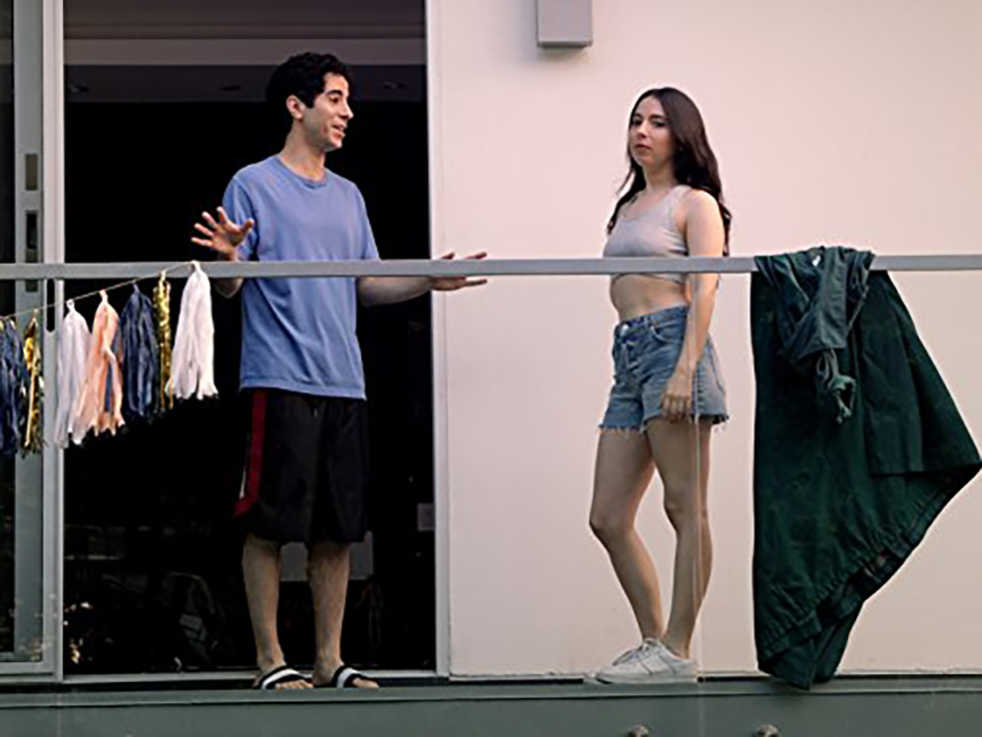Awkward comedy can either go very right or very, very wrong, but “Alone Together,” a new comedy on Freeform, absolutely nails it. Despite having two virtually unknown leads and a seemingly ordinary plot, the show transcends the banality of basic punchlines and slapstick.
Instead, the audience experiences the status-driven mentality of Los Angeles millennials through the witty scope of Esther (Esther Povitsky, “Crazy Ex-Girlfriend”) and Benji (Benji Aflalo, “City Girl”), two misfits who brave society together.
Esther and Benji are immediately introduced as best friends only. They both yell it to Esther’s one-night stand as Benji picks her up the next morning —“Yeah, just platonic friends!” Every other character throughout the premiere also points out the pair’s obvious connection, even as the two attempt to date others.
Viewers, too, recognize their destined relationship. Though there is not physical chemistry yet, everything else clicks. They live together, they know each other like the backs of their hands, they depend on each other as refuge from the outside world and they are hilarious — a match made
in heaven.
The premiere also introduced another striking characteristic of their relationship: lightheartedness. Even when Benji essentially steals a job from Esther, she never gets visibly upset, though she says she is angry.
Her role never strays to true sadness as an opportunity that might have turned things around for her passes by. Instead, she remains superficially jealous. The situation is treated in the same light as their quietly sad jokes about elusive beauty and popularity: with a complaint and a shrug. Such writing keeps the plot moving, the jokes funny and the viewers engaged.
This feat is extraordinary to accomplish in a show centered on self-image and self-worth, which is a deeply sensitive topic for most people. There is never a chance to feel the pain of their self-deprecating jokes. In the moment, it feels relatable and funny. Only after the show ends can the truth of the comedy register and the genius of the writing, also by Povitsky and Aflalo, be appreciated.
While there is the obvious “will-they-won’t-they” thread in which viewers become immediately invested, what will be most fascinating to watch is the show’s treatment of Esther and Benji as individuals. Though they are spectacular together, they are just as fascinating alone.
Both mock themselves and are focused on correcting their quirks, but in doing so, they mock the rest of the world too — the world that labeled these quirks as flaws. Despite being beautiful in their own right, both are apparently in the lowest caste of L.A.’s picture-perfect population.
They make themselves every punchline by pointing out their own supposed flaws — their weight, their unattractiveness, their poorness, their awkwardness — in comparison to those around them. Yet the show is geared toward making those around them seem ridiculously petty and one-dimensional, so Esther and Benji mocking themselves just makes them even more endearing and more infuriating, as viewers watch them strive to be different.
Through subtle humor, the show drives home the idea that the flaws are what make Esther and Benji interesting. Next to the two of them, every character, even the stunning, charming, bikini-wearing fashion moguls, fall flat, which is precisely what the
show intends.
The journey to keep an eye on is not just that of two best friends realizing that they are meant to live happily-ever-after together, but also that of two young individuals fighting to find their self-worth in a materialistic, image-obsessed society.
